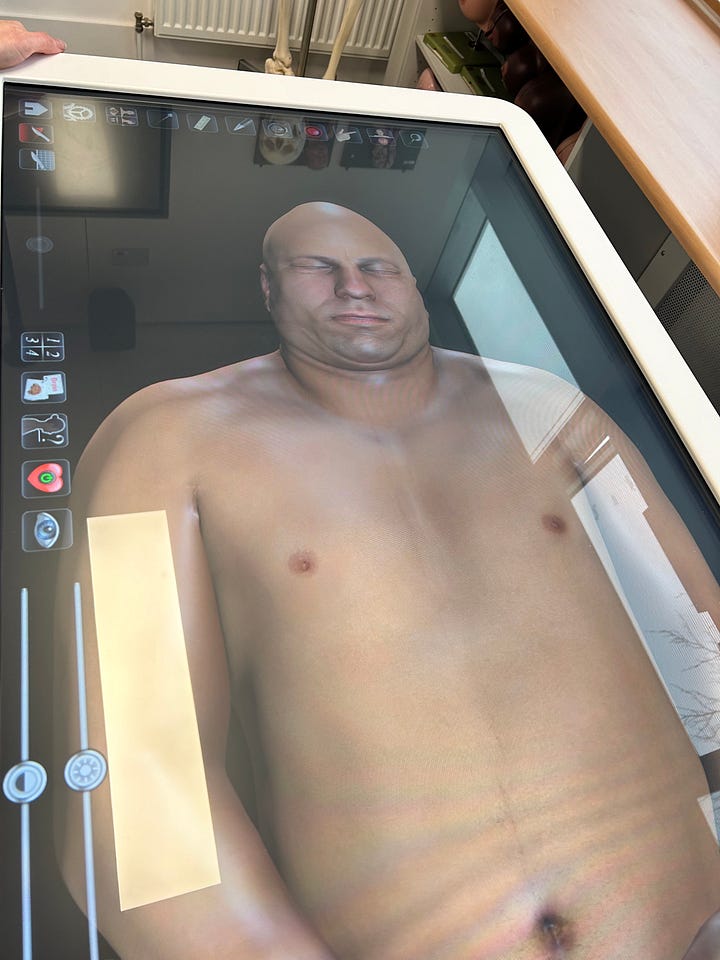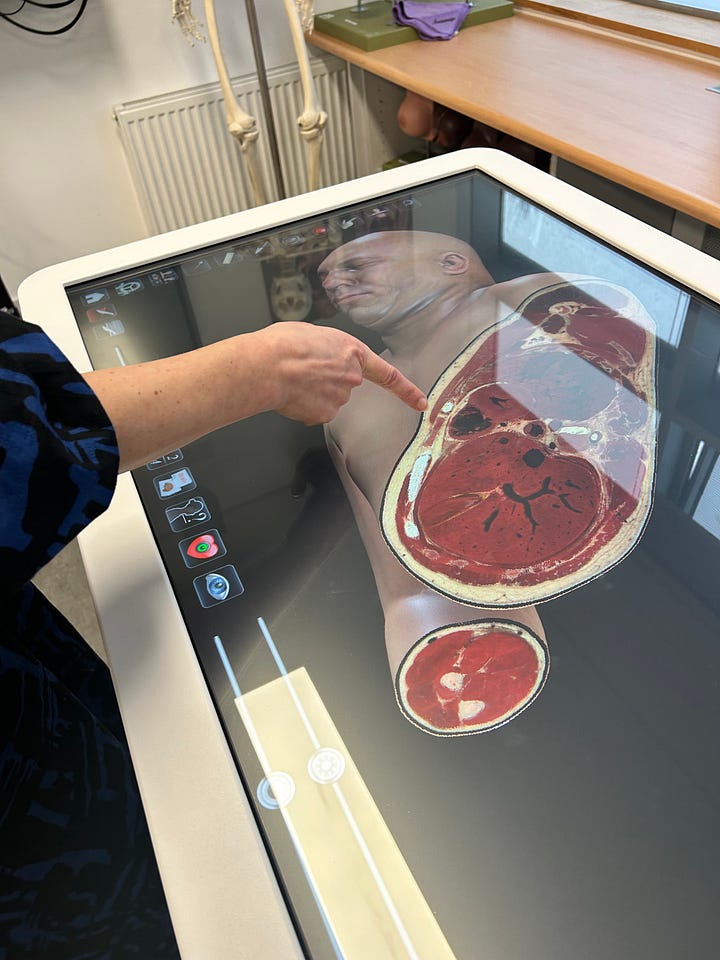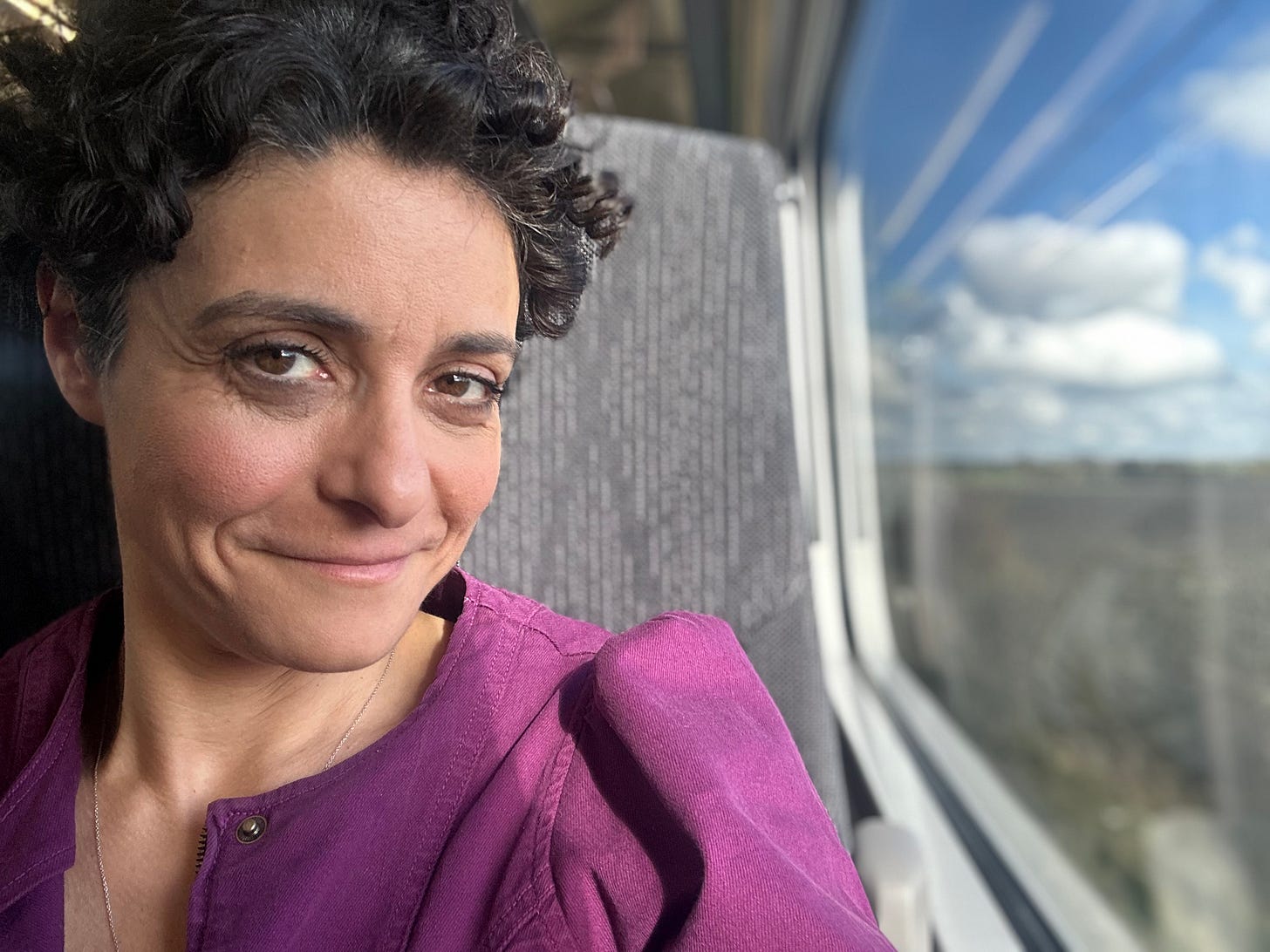I’ve spent much of the last four years looking into dead bodies. I’m fascinated by the study of human anatomy - and the human beings who decide to donate their bodies so that doctors of the future can learn from them, surgeons can practice on them, and new medical devices and techniques can be pioneered through them. Over 1,3000 are donated every year in the UK - but that’s not enough to meet the demand for them.
I’ve written a piece for the Sunday Times Magazine about whether the future is fancy digital technology - or importing cadavers from America. It’s out in print on Easter Sunday, but they’ve put it up online early.


Meet Carl, a former death row prisoner executed by lethal injection. His body was then frozen, thinly sliced, photographed and uploaded into something that looks like a cross between a giant iPad and a dissection table. It’s called Anatomage, and it’s quite amazing.
But is it enough? Would you want yours to be the first living human body a surgeon ever cut into, or the first to have a new medical implant or technique tried out on?
There will always be a need for human bodies in training and research, but the shortfall in donors means British institutions sometimes import human bodies from tissue banks in America, where companies are allowed to make a commercial profit from supplying them.
I write about the tissue banking industry in detail in Chapter 12 of The Price of Life (entitled $5,000 (excluding shipping) - A Cadaver). It includes an interview with tissue bank owner Garland Shreves, who told me if I called him a ‘body broker’ (the term often used for people who supply human body parts for profit) he would call me a prostitute. Needless to say, I think it’s worth reading in full. But the Sunday Times Magazine piece is a good start, and, looking at the comments, it’s already inspiring people to donate.
It’s been an exciting week for The Price of Life. I chatted to Jeremy Vine about it on his Radio 2 show (about 30 minutes in on that link), and also ABC in Australia, Jane and Fi on Times Radio and Off Air. And some other things I’m not allowed to tell you about yet.
I know I should probably be over it by now, but, as you may know, my first book came out during the pandemic, when I was either talking to a screen or shouting into a void. This time, I’m getting to go out and meet readers an all their three dimensional glory, and I’m loving it.
So far I’ve done my local bookshop, The Owl, Waterstones Gower Street and had a really glorious time at Rossiter Books in Ross-On-Wye - but there are many more events in the pipeline, including Edinburgh, Bath, the Trouble Club in London, Hay and even Camp Bestival. I’d love to see LRN subscribers there, so if you’re planning to come along, do say hi.
Things that have caught my eyes and ears:
Hammered nails into a canvas and sellotaped notes about my mother onto the wall at the satisfyingly batshit Yoko Ono exhibition at Tate Modern. (Favourite note: “Her concerts in Tokyo included The Pulse, in which performers made sounds while tackling mathematical problems on stage, and Audience Piece to la Mote Young, where performers stared at the audience until the audience left.”)
Was enlightened and thoroughly depressed by Sam Knight’s New Yorker piece on what 14 years of Tory government has done to the UK. “Covering British Politics during this period has been like trying to remember, and explain, a very convoluted and ultimately boring dream. If you really concentrate, you can recall a lot of the details, but that doesn’t lead you closer to any meaning.”
Discovered Donald Glover’s Atlanta, far too late. My mind is somewhat blown.




